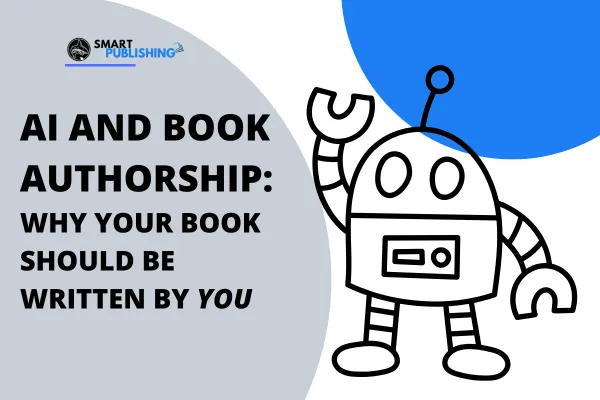
AI and Authorship: Why Your Book Should Be Written by You
AI and Authorship: Why Your Book Should Still Come From You
We get a lot of questions about AI, and I think it’s important to address what AI can (and can’t) do in the world of book writing.
Let me start with this: I believe AI is an incredible tool. I use it, our team uses it, and it absolutely has a place in publishing—especially when it comes to refining ideas, cleaning up grammar, or organizing content.
But there’s one thing it shouldn’t be used for: actually authoring your book. Unless you're writing a highly technical manual or guide, AI should not be the one telling your story.
As an editor who’s read hundreds of books, both human-written and AI-generated, I can say this with full confidence:
AI cannot replicate the human soul on the page.
And that's what matters most.
Let’s break this down further based on the key points I covered in a recent talk:
1. AI Authored Books Are Missing Something Critical: Humanity
If you've ever read a book generated by AI, you know what’s missing: the soul. The personality. The raw and real perspective that only a human can offer. AI can organize data. It can even mimic tone. But it cannot connect. That’s the difference between compiling facts and telling a story that actually moves someone.
2. There’s a Line Between Using AI as a Tool vs. Using It to Write for You
I fully support using AI to improve your book—think editing, sentence flow, or idea clarification.
But using AI to write the book for you and then putting your name on it? That’s crossing a line.
It’s like printing a digital painting from an AI program and signing your name in the corner. It might be “yours” in the sense that you prompted it—but you didn’t create it.
3. Legally, You Can’t Copyright AI-Authored Content
Here’s the legal kicker. U.S. copyright law requires human authorship. There’s actual precedent for this—like the famous case where a monkey took a selfie, and courts ruled no one owned it because no human created it. Same logic applies to AI.
So, if you write a book with AI and try to copyright it, you may get through the filing—but it wouldn’t hold up in court. That content is considered public domain.
4. The Myth of AI “Reading” and Rewriting Existing Books
Some folks think AI can read any book and rewrite it instantly. That’s simply not true.
AI doesn’t have access to everything. Books that are paid, protected, or behind a wall aren’t just sitting there waiting to be copied. Plus, ethical AI platforms are being designed specifically not to infringe on other people’s intellectual property. So that “shortcut” people think exists? It really doesn’t.
5. What’s Coming: Detection and Disclosure
The Authors Guild—the largest advocacy group for writers—is actively working on systems that distinguish between human and AI authorship. They’ve even created a “Human Authored” certification, similar to organic or non-GMO food labels.
Meanwhile, Amazon has already started gathering data on whether a book contains AI-generated text.
I predict we’ll see detection software added directly into platforms like Kindle Direct Publishing (KDP) soon.
That means if you upload a fully AI-written book, you could face one of two outcomes:
Rejection from the platform altogether, or
Mandatory labeling as AI-authored, which could tank its visibility in search algorithms.
6. Why Readers Still Crave Human Connection
At the end of the day, most readers—especially nonfiction and fiction fans—aren’t just looking for information. They’re looking for a connection. They want insight, emotion, lived experience, nuance.
Books are deeply personal. Whether it’s a memoir, a leadership guide, or even an entertaining novel, people want to know you wrote it.
So what’s the bottom line?
Use AI as your assistant, not your author.
Let it support your writing process—not replace your voice.
The world doesn’t need another generic AI book.
It needs your story—told in your words, from your mind, and with your heart behind it.
